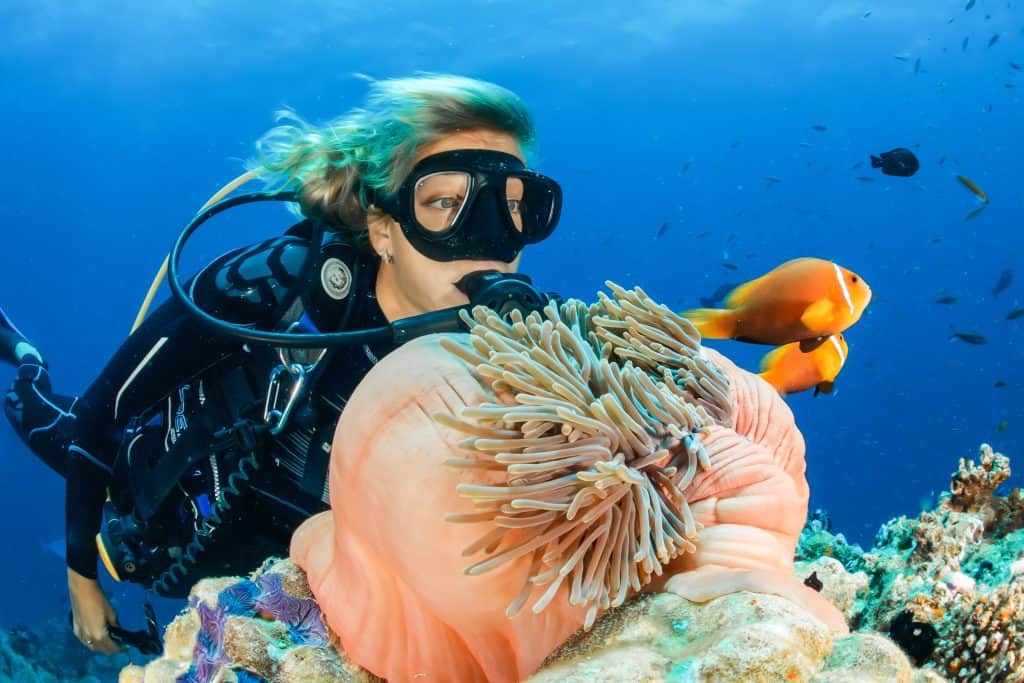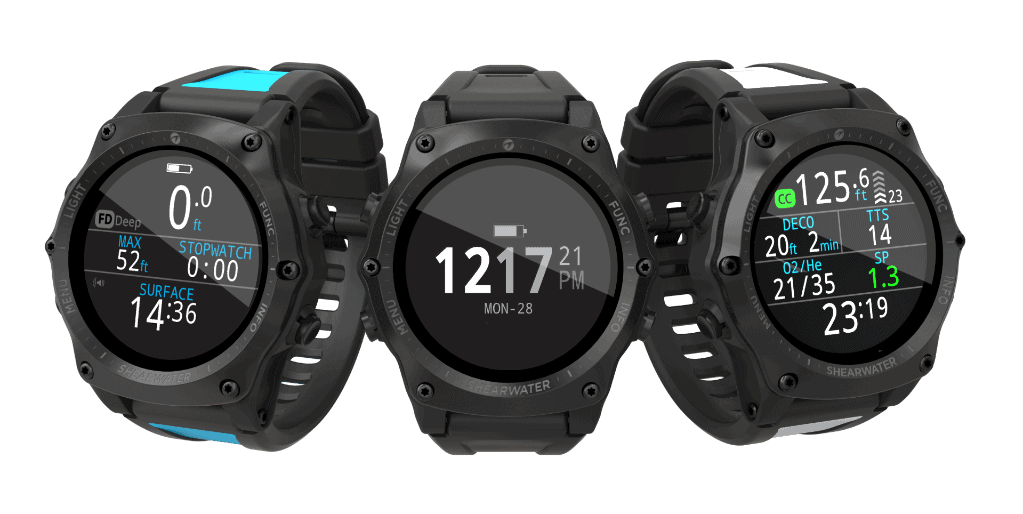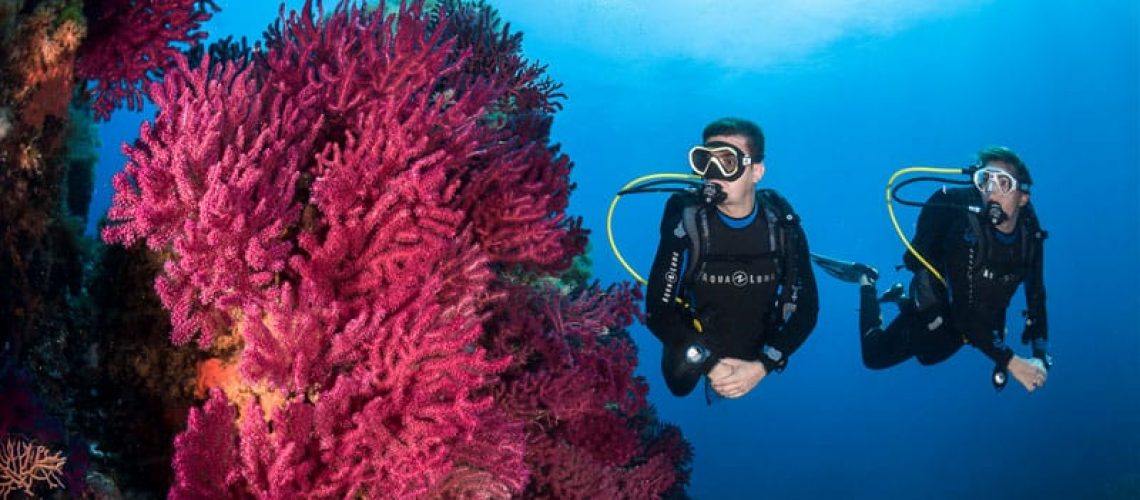Things Scuba Divers Need To Know
It doesn’t matter whether you have done only your 4 qualifying dives or 400 dives, here at Dive Station Pattaya these 10 Things Scuba Divers Need To Know apply to everyone. When scuba diving either here in Pattaya or elsewhere in the world, there are some important rules and guidelines you should follow that keep you safe, but you are not the only thing that needs to be kept safe.
Here at Dive Station Pattaya we also want to teach you some stuff to ensure you protect the underwater world. These are not conservation techniques, but just things to keep in mind to ensure you do not cause any (accidental) harm while diving, so that you and future generations can keep returning to and enjoying the fragile underwater environment.
1) Do Not Touch
We are only human, scuba diving surrounded by the most amazing corals and sea life will create certain temptations. You will see the most incredible variety of colours and shapes, reefs and coral, as well as fascinating creatures. Therefore you should be reminded that you should never touch anything no matter how tempting.
What some some scuba divers (and non divers) alike don’t realise is that many of the things you see underwater are delicate living beings. Touching them may cause irreversible damage and even lead to them dying, coral is such an example.
Another reason not to touch anything is that some of these beings are likely to react in order to protect themselves, like stinging or biting, which can cause serious injury.
We scuba divers have a great motto which we recommend you should follow at all times: “Take only pictures and leave only bubbles”.

2) Don’t Follow Peer Pressure
Every diver within a group or buddy team should be comfortable with the proposed plan ahead of making the dive. If you have any concern or worry, or there is anything you want to discuss prior to making the dive, don’t be afraid to speak up and most importantly don’t let others tell you what is right or not.
You are responsible for your own safety, and it is not worth getting hurt or worse for the sake of missing a dive to trying to please everyone in the group. A diver needs to be happy with the plan and confident that it is well within their personal limitations and training.
This is also not just the case before a dive. You should let your buddies (or dive guide) know immediately if anything during the dive makes you uncomfortable and abort the dive if necessary. There is no shame in doing so, and no diver should ever be questioned about their reasons for aborting a dive.

3) Improve Your Buoyancy Skills
Buoyancy control is an essential skill you learn during your Open Water course and is something that every scuba diver should strive to perfect. Any diver should be able to ascend or descend by using breath control and maintain neutral buoyancy throughout a dive.
This is not just really important as it affects your air consumption and overall exertion levels during a dive, it also means that you are unlikely to kick or bump into anything you shouldn’t, which may cause serious harm to aquatic life and there relates directly to point 1.
If you are worried about or just want to generally improve your buoyant speak to us here a Dive Station Pattaya about the PADI Peak Performance Buoyancy course to help with your transition to a buoyancy ninja.
4) Watch Your Fins
Being in control of your fins and aware of your surroundings is also a very important skill you need to know. A diver who is not aware of where their fins are going will undoubtedly hit or break something at some point, or even kick another diver in the face. This can upset habitats, hurt aquatic life, and you could even end up kicking your buddy’s regulator out of their mouth – which will certainly up them!
If you do hit something with your fin (happens to the best of us), stop and check what you’ve hit, and position yourself to make sure you don’t do it again, this where your buoyancy skills come into play.
Always ensure you are considerate and aware of your surroundings as well as your own body, – especially when taking photos. Practice good buoyancy control and always keep a few metres above the bottom and away from walls and other obstacles, which reduces the risk of accidentally hitting or kicking something or someone!

5) Check Your Dive Gear
Irrespective of which brand, design or type of dive gear you choose, the purpose is the same – your gear is there to keep you safe. It is therefore essential that you look after it, keep it well maintained and service it regularly if it your own gear. If your renting on holiday give it a check over as you’re putting the gear together on the boat and flag up anything that doesn’t look right to your instructor/divemaster
And always put your own dive gear together, I can not stress this enough. Dive gear is designed to keep you safe and the best way to ensure this happens is to ensure yourself it set up correctly and how you like it. Many dive centre want to set gear up for divers, for the simple reason they want a good tip. I always politely say no (and it doesn’t effect how I would tip) as an instructor expect all certified divers to do the same. Obviously don’t ever afraid to ask for help it is been a while since you’ve been diving or some of the equipment is different to what you have used before.
6) Always Blow Bubbles
I may have only put this at number 6, but it is still of course, the most important rule of scuba diving. Beathe continuously and ever ever hold your breath!
This rule gets a lot of emphasis during your basic scuba diving training, and there’s a very good reason for it. Air compresses and expands as you change depths, due to the changes in pressure. During a dive, you will notice this the most in your BCD, and you will have to make up for those changes by adding or letting out air. The same also happens to your lungs, so if you were to hold your breath while ascending for example, the expanding air in your lungs could cause some serious injury.
So why am I reminding your about it, if it should be engrained in your psyche already – its easy to get carried away while surround by all these amazing sights and especially while trying hold still to get the perfect photo. No matter what always calmly inhale and exhale throughout your dive, and always blow those bubbles
7) Know Your Gas
The air in your tank is what keeps you alive underwater, so it goes without saying that you should always know how much you have left. Make a habit of checking your gauges as often as possible during a dive and communicate with your buddies when it’s time to turn the dive.
It’s equally important that you thoroughly plan your dive before making it, including turn pressures, and that you dive the plan. Your plan should be conservative and well within your limits.
As you become more experienced as a scuba diver, you will get a feel for how quickly you breathe down your air, and your air consumption may get better as you improve on skills such as buoyancy control and finning techniques. But regularly checking your gauges remains essential no matter how many dives you have or how confident you are as a diver.
Knowing your gas also means that if you are Nitrox trained and diving Nitrox, that you have personally analysed the gas bland, set your computer appropriately and are are of the max depth for the blend. As with seating up your equipment never ever leave this to someone else even your instructor.

8) Do NOT Exceed Your Limits
Every scuba diver has limitations, whether that’s down to training, experience, skill, or what they personally feel comfortable with. Be honest with yourself, don’t disregard the risks and only make a dive that’s within all those limits. Choose dive sites that are suitable for your level of experience and other limitations, and dive with buddies that have similar limitations to your own or are happy to plan the dive based on yours. Refer to point 2 not succumbing to peer pressure.
It goes without saying that exceeding your personal limits on a dive is not just going to take the fun out of it, it will also put yours and your buddies’ safety at risk.

9) Listen To Dive Briefings
Dive briefings are vitally important, contrary to what you may think we instructors don’t just like the sound of our own voice. Dive Briefings will give you essential information such as an overview/map of the dive site, a summary of the dive plan, and an idea on what you can expect in terms of diving conditions and wildlife.
Not listening to the briefing can mean that you may miss out on things the dive site has to offer, it could completely spoil your dive, or even worse, you could end up getting lost or separated from the group.
10) Do NOT Touch!
OK this point is a repeat but this point is so important that it deserves repetition and technically this doesn’t make this a list of then things. But I’m sure you agree with us all here at Dive Station Pattaya that scuba divers should not touch anything underwater and don’t take anything with you that you shouldn’t.
Ahen you scuba dive here in Pattaya and anywhere else in the world remember the phrase: take only pictures, leave only bubbles.
The 10 Things Scuba Divers Need to Know are not by any means the only things you need know. I’m are sure you can think of more. Leave your thoughts in the comments below.



